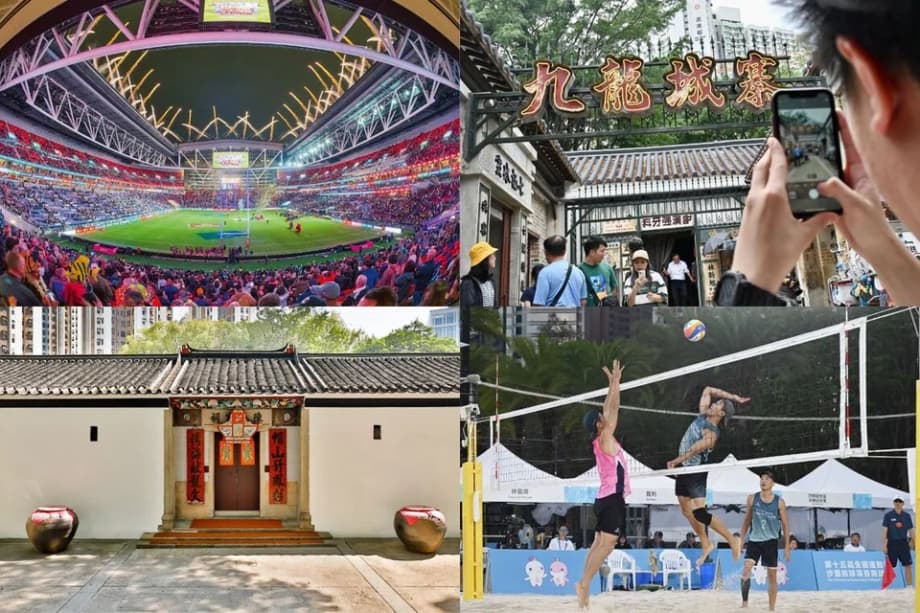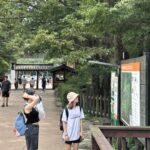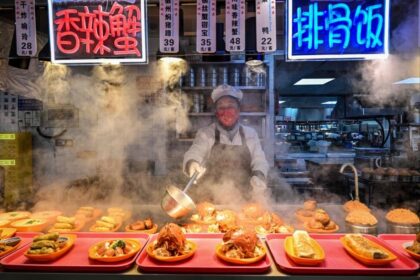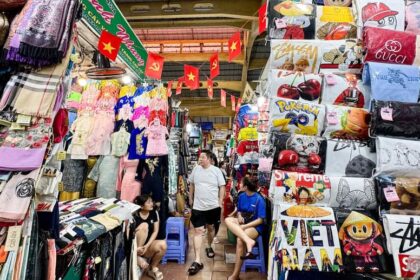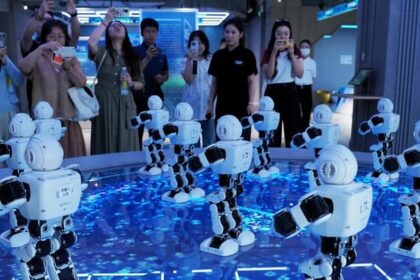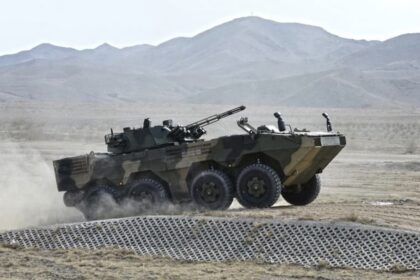A citywide celebration of sport and culture
Hong Kong is preparing for a landmark November as the city joins Guangdong and Macao to host the 15th National Games of the People’s Republic of China from November 9 to 21, 2025. It is the first time the National Games will be staged jointly across the three Greater Bay Area locations. The program brings elite competition, new visitor experiences and a citywide showcase of venues and attractions. With Hong Kong’s transport links and event facilities, the city is positioning itself as a magnet for sports fans and travelers seeking a festive atmosphere.
- A citywide celebration of sport and culture
- What the 15th National Games brings to Hong Kong
- How the Greater Bay Area will make cross border competition work
- Kai Tak Sports Park and other venues to watch
- Tickets, passes and how to plan your visit
- Volunteers, hospitality and visitor services
- Beyond the stadiums, culture and AR routes across the city
- Tourism and the local economy
- Accessibility and the December events
- Key Points
The National Games is the highest level multi sport event held in China every four years. Organizers plan 419 medal events across 34 sports and expect around 15,000 athletes to compete across Guangdong cities, Hong Kong and Macao. The guiding vision focuses on games that are green, inclusive, open and clean. That approach combines tested venues with operational innovations, including cross border races that link the three host locations.
For visitors, the appeal is broader than a schedule of contests. The new Kai Tak Sports Park will anchor headline events in Hong Kong. Immersive touches, such as an augmented reality game and themed visitor routes, will link stadiums to neighborhoods, parks and museums. Industry estimates point to more than 100,000 visitors coming to Hong Kong for the games period, a timely lift for hotels, dining and retail. November and December are set to feature cultural festivals and seasonal celebrations across the city, creating a rich calendar for travelers who want sport and culture on the same trip.
What the 15th National Games brings to Hong Kong
Hong Kong will stage a slate of top tier events while also taking part in cross border races that underline Greater Bay Area cooperation. Organizers have confirmed a mix of indoor and outdoor sports, plus a mass participation event designed to engage the public.
Which events will Hong Kong stage?
- Fencing
- Basketball for men under 22
- Track cycling
- Golf
- Handball for men
- Rugby sevens
- Triathlon
- Beach volleyball
- Mass participation bowling
Cross border events will be a signature feature. Organizers have planned a road cycling race that connects all three hosting locations on one day. The men’s individual route of about 230 kilometers will start in Zhuhai, loop through the north of Macao, cross the Hong Kong Zhuhai Macao Bridge to reach Hong Kong Disneyland, then return to Zhuhai for the final sprint. A marathon is planned across the three areas, with routes designed to connect Hong Kong and neighboring cities.
Games mascots will be visible across the city. Xiyangyang and Lerongrong, inspired by the Chinese white dolphin, symbolize joy, harmony and unity. The species is a Grade I National Key Protected Species in China, often called the national treasure of the sea. Expect mascot installations at public spaces, visitor centers and countdown displays.
How the Greater Bay Area will make cross border competition work
Staging a same day race across three jurisdictions requires precise coordination. Organizers and partner agencies have designed a custom clearance system for athletes and technical staff. Pre checks handle documents in advance. During the race, sensors will scan faces and wristbands at mid race checkpoints to validate identity at speed. The plan aims to keep racing continuous while maintaining security and compliance.
Tong Lixin, a vice president of the organizing committee and a vice minister of the General Administration of Sport of China, described what the trial showed about the system and cooperation.
We have completed a successful test run of the race. It proved that we can figure out a method for smooth transfer of personnel, materials and supplies across the three areas, not just for this competition, but also for more cultural, tourism and business events in the future.
Hong Kong officials view the joint hosting as a practical way to connect people and services across the region. Chan Kwok ki, the chief secretary for administration of Hong Kong and a vice president of the organizing committee, framed the opportunity in policy terms.
Co hosting the 15th National Games has offered Hong Kong a great opportunity to integrate into the development of the Greater Bay Area and the whole country, and to put the one country, two systems policy into action in daily operations.
The torch relay underscores the shared stage. Four Greater Bay Area cities, Guangzhou, Shenzhen, Hong Kong and Macao, will run simultaneous relay routes before the opening ceremony. In Hong Kong, the route will start at the Central Government Offices at Tamar and finish at Kai Tak Sports Park, passing signature Victoria Harbour scenery. Organizers say the relay will feature 200 torchbearers across the four cities.
Venue readiness follows a reuse first approach. More than 90 percent of competition venues across the three hosting areas are existing facilities, tested and renovated for operations in a sustainable way. That approach reduces build times and keeps the focus on athlete experience, event flow and fan services.
Kai Tak Sports Park and other venues to watch
Kai Tak Sports Park, a 28 hectare sports and entertainment complex built on the former airport site, will be the centerpiece of Hong Kong’s program. It brings a modern main stadium, an indoor sports center and a public sports ground into one connected park, with dining and landscaped spaces that keep spectators on site between sessions. Rugby sevens is scheduled for the main stadium during the games period, a natural fit given the city’s long rugby tradition.
Other events will spread across tried and trusted sites. Track cycling is set for the Hong Kong Velodrome in Tseung Kwan O. Basketball for men under 22 is scheduled for the Hong Kong Coliseum. Triathlon will turn Victoria Harbour into an urban race course, pairing open water swims with waterfront bike and run loops. Beach volleyball will bring a festival vibe to a waterside setting. Fencing, golf and handball will use venues across the city to balance athlete needs, seating capacity and transport access.
Getting around the city on event days
Most venues sit within short walks of MTR stations, which makes rail the simplest option on competition days. Plan to arrive early, especially for medal sessions and popular sports. Security screening will be in place. Visitors staying near the Kowloon East area can reach Kai Tak Sports Park quickly by rail or taxi. The Velodrome links to the Tseung Kwan O line. The Hong Kong Coliseum in Hung Hom connects to several lines and cross harbour services. Victoria Harbour viewing points on both sides offer good sight lines for triathlon, with spectator areas announced closer to race day.
Tickets, passes and how to plan your visit
Ticketing for the National Games uses one platform for Guangdong, Hong Kong and Macao. Buyers complete real name registration, then purchase tickets for events in any of the three locations. Sales are rolling out in phases. In Hong Kong, releases began on August 28 and continue by sport. Prices vary by event and session, with a broad range from around RMB 50 up to RMB 500 for high demand sessions. Where offered, half day and full day passes give flexibility for fans who want to follow multiple sessions at the same venue.
For official updates, schedules and news about the Hong Kong program, visit the National Games Coordination Office page at 2025nationalgames.gov.hk. Ticketing details for the integrated platform are posted at ticket.baygames.cn. Registration is required before purchase, and identity documents are checked on entry.
Practical planning tips
- Check the daily schedule before buying tickets, then group sessions by venue to reduce travel time.
- Allow buffer time for security checks and crowds, especially near the start of evening finals.
- Consider accommodation in Kowloon East or along the Tseung Kwan O line for easy access to Kai Tak Sports Park and the Velodrome.
- Bring a refillable water bottle where permitted, as many venues have hydration stations.
- Keep mobile data ready for e tickets and real time transport updates.
Volunteers, hospitality and visitor services
Hong Kong has assembled one of the city’s largest volunteer teams for a sports event, with more than 16,000 people selected from tens of thousands of applicants. Volunteers range from students to retirees. They will support arrivals and departures at checkpoints and the airport, help with hotel reception, guide spectators at venues, assist with awards ceremonies and support anti doping controls. This presence will help visitors navigate the city and give athletes and officials smooth service touchpoints throughout their stay.
Where athletes and officials stay
To support the November and December events, organizers designated official hotels for teams and technical officials through an open tender. Criteria included category and capacity, facilities, management plans, previous event experience, green certification, security and proximity to competition venues. Eight properties are serving the National Games, and four hotels are designated for the National Games for Persons with Disabilities and the National Special Olympic Games. Nina Hotel Tsuen Wan West, for example, is hosting delegates for para table tennis and Special Olympics table tennis, with several hundred rooms serviced daily for athletes, coaches, judges and support staff.
Beyond the stadiums, culture and AR routes across the city
Event weeks will be a chance to explore Hong Kong’s neighborhoods beyond the seats. The city’s themed visitor routes and an augmented reality game tie sightseeing to the spirit of the National Games. Each route highlights parks, waterfronts, heritage clusters and modern museums that sit within an easy ride of event venues. Food and shopping areas are woven into the route ideas to balance a day of sport with time in local streets and markets.
Eight themed routes and an AR game
The National Games GOAL n GO experience is an augmented reality journey with checkpoints and mini challenges across eight unique routes. It turns city walks into a light game that pairs selfie spots and cultural stops with sports icons. Travelers can unlock badges and small surprises as they move along the routes.
Three clusters make these routes simple to plan. On Hong Kong Island, green spaces and heritage sites reveal layers of the city near Central and Sheung Wan, with transport links that quickly reach Victoria Harbour viewing points. In Kowloon, modern stadiums sit close to historic parks and waterfront promenades. In the New Territories, museums and long waterfronts offer quieter walks and cycling paths with mountain backdrops. The routes help visitors thread together stadium sessions with galleries, gardens and photo views without long transfers.
- Morning at Kai Tak Sports Park, lunch along the Kowloon waterfront, then an evening session at the Hong Kong Coliseum.
- Triathlon viewing by the harbour, a ferry ride, and an afternoon art stop at West Kowloon Cultural District.
- Cycling practice at community bike paths in Tseung Kwan O, coffee break, then a night of track cycling at the Velodrome.
Tourism and the local economy
Tourism leaders expect the games to lift spending across hotels, restaurants, retail and transport. Visitor projections exceed 100,000 for the period, driven by fans following competitions in Hong Kong and travelers who plan multi day itineraries that include Macao and Guangdong cities. The hotel sector prepared early, coordinating with the organizing office to ensure capacity near venues and smooth group handling for teams, officials and spectators. Event weeks also create seasonal jobs in guest services, logistics and event operations.
Promotion runs across official channels and visitor centers, with mascot displays appearing at festive events to build awareness. The joint hosting gives the tourism boards and travel agents a chance to bundle tickets with short tours across the region, a format that makes weekend trips easy for visitors who want to see more than one city. The integrated ticketing platform is designed to support those packages.
Business events and incentives are likely to benefit from the attention on Hong Kong’s event infrastructure. International delegations will see venues in action, commuter routes under load and hospitality teams working at scale, all of which help planners assess the city for future conferences and tournaments.
Accessibility and the December events
The sports calendar continues in December with the 12th National Games for Persons with Disabilities and the 9th National Special Olympic Games from December 8 to 15. The three hosting areas will again coordinate. Hong Kong will stage four events, including boccia, wheelchair fencing and para table tennis in the TT11 classification, as well as Special Olympics table tennis. A large scale wheelchair dance event will invite public participation.
Boccia, a precision ball sport played on a flat court, is designed for athletes with severe physical disabilities. The TT11 classification in para table tennis is for athletes with intellectual impairment. These details matter to spectators who want to follow the competition system and appreciate the skills on display. Volunteer training and venue planning include accessibility considerations, from step free routes to seating that accommodates wheelchairs and companions. Public transport lines serving event sites offer barrier free access at station gates and platforms.
Some sports began before the main window in November. Sailing delivered an early highlight when Nicholas Bezy Halliday won Hong Kong’s first gold medal of the games in the men’s ILCA 7 event. Rosanna Law, the secretary for culture, sports and tourism, congratulated the champion and stressed what the moment means for the host city.
I am very glad that Nicholas Bezy Halliday, with persistence and effort, overcame challenges to win Hong Kong’s first gold medal at the 15th National Games. This achievement makes people across Hong Kong proud.
Key Points
- Dates: National Games run November 9 to 21, 2025, across Guangdong, Hong Kong and Macao.
- Scale: 419 medal events in 34 sports, with about 15,000 athletes expected.
- Hong Kong events: fencing, basketball for men under 22, track cycling, golf, men’s handball, rugby sevens, triathlon, beach volleyball, plus mass participation bowling.
- Cross border races: a one day road cycling race linking Zhuhai, Macao and Hong Kong, with an integrated clearance system; a marathon across all three areas.
- Venues: Kai Tak Sports Park is the anchor in Hong Kong, with key events also at the Hong Kong Velodrome and Hong Kong Coliseum.
- Tickets: integrated, real name platform with phased releases; prices vary by sport and session. See 2025nationalgames.gov.hk and ticket.baygames.cn for details.
- Volunteers: more than 16,000 helpers will support arrivals, venues, awards and anti doping operations.
- Tourism impact: industry projections exceed 100,000 visitors to Hong Kong during the period.
- December events: the National Games for Persons with Disabilities and the National Special Olympic Games run December 8 to 15, with four events hosted in Hong Kong.
- Early success: Hong Kong sailor Nicholas Bezy Halliday secured a gold medal in the men’s ILCA 7 event during early competitions.


